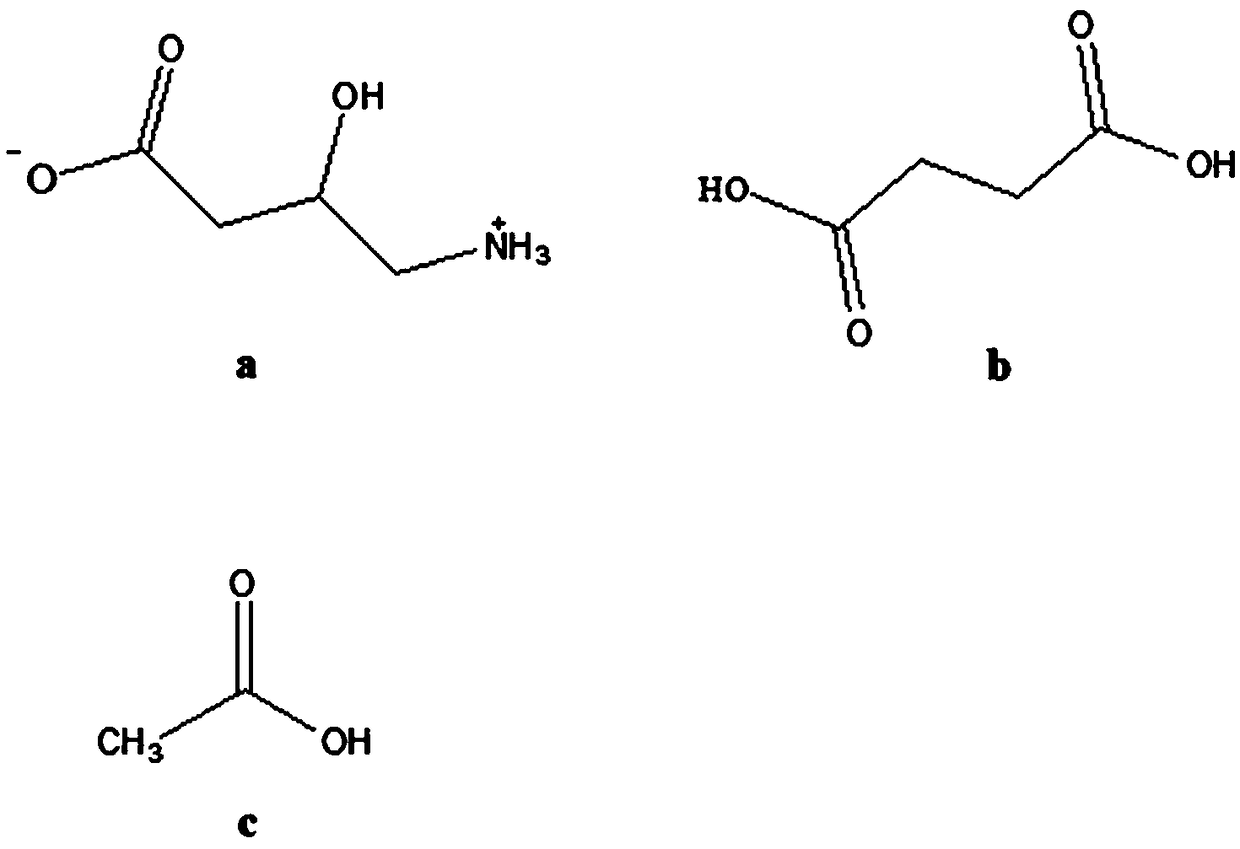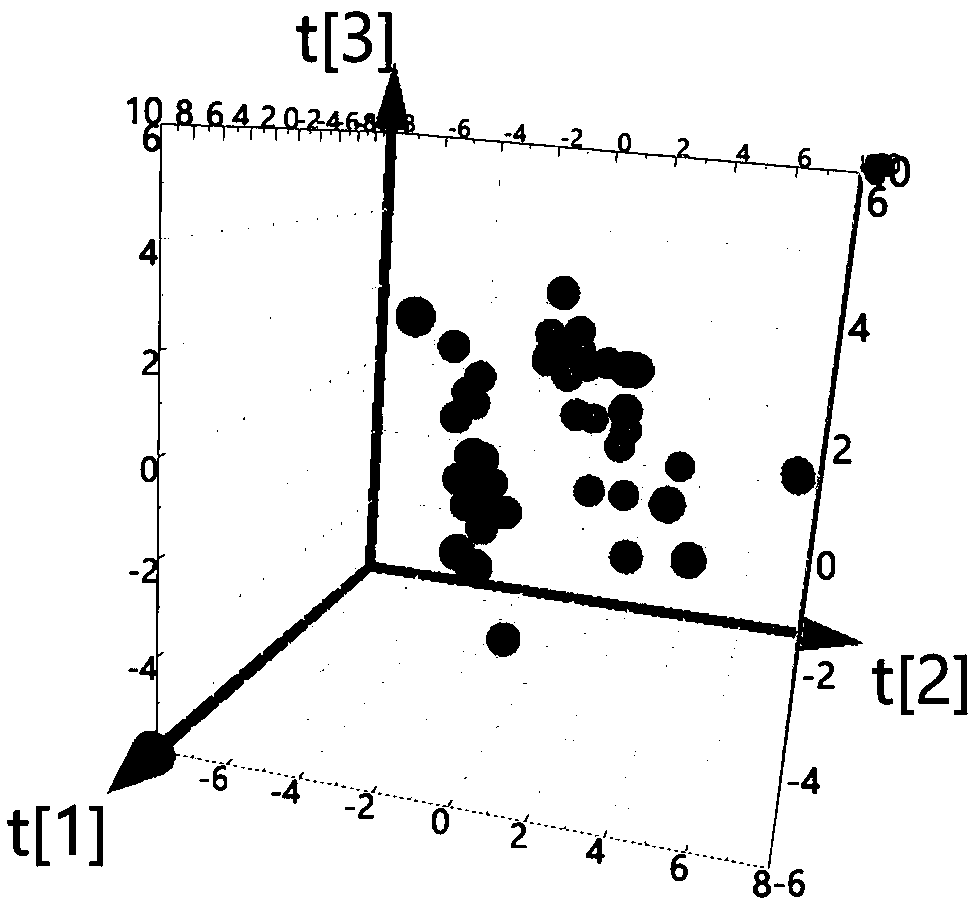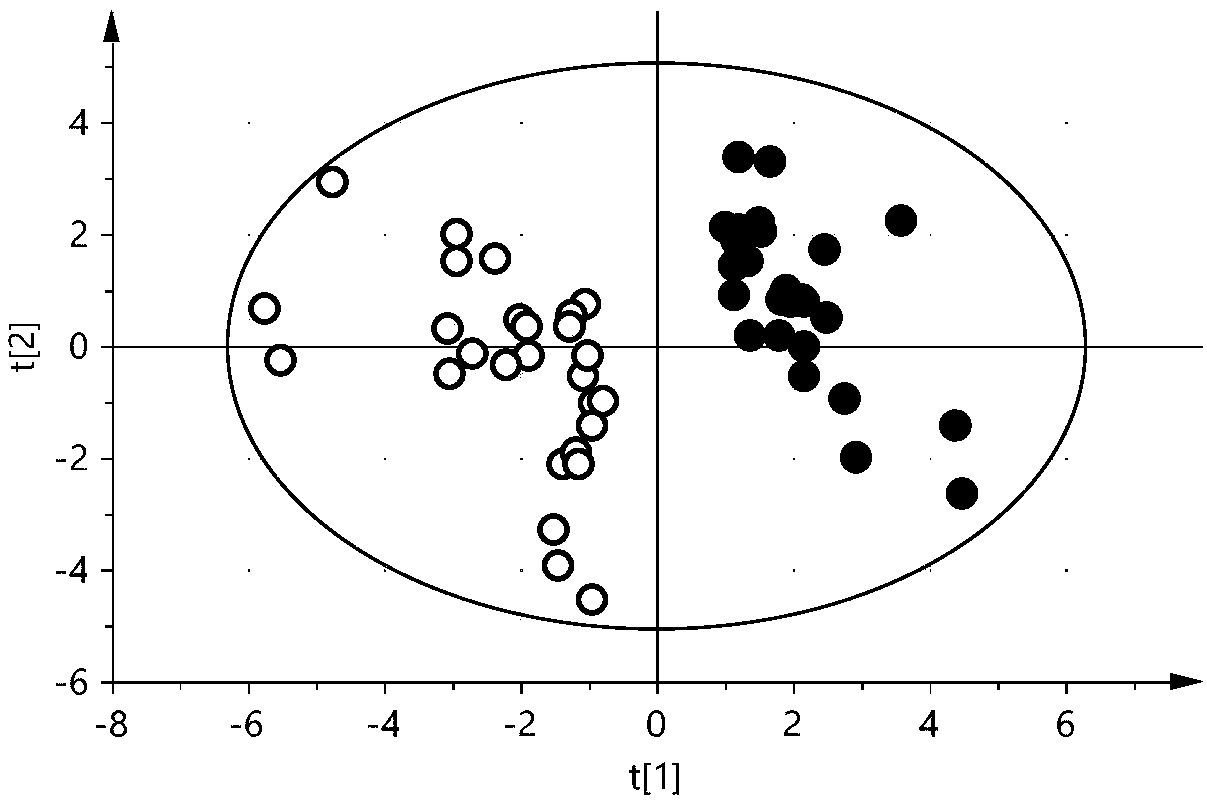Nuclear magnetic resonance spectroscopy method for identifying ultrahigh-temperature sterilized milk and reconstituted milk
A technology of nuclear magnetic resonance spectroscopy and ultra-high temperature sterilization, which is applied in the fields of nuclear magnetic resonance analysis, material analysis through resonance, and measuring devices, which can solve the problems of loss of nutritional value, complicated processing, and long time consumption, and achieve high accuracy , Improve the detection efficiency, the effect of strong feasibility
- Summary
- Abstract
- Description
- Claims
- Application Information
AI Technical Summary
Problems solved by technology
Method used
Image
Examples
Embodiment 1
[0032] Embodiment 1, the pretreatment of sample
[0033] 10 brands of UHT milk and 10 brands of whole milk powder (milk powder) were purchased from major supermarkets in Beijing.
[0034] The preparation method of the reconstituted milk is as follows: according to the protein content of 3.0g per 100mL of milk, the milk powder is added to the ultrapure water, and then the temperature is kept in a water bath to 40°C, and the reconstituted milk is homogenized by hand to obtain a milk sample of the reconstituted milk.
[0035] Take 2 mL each of the above ultra-high temperature sterilized milk and reconstituted milk, and centrifuge at 8000 rpm for 30 min; separate the lower layer solution, take 1 mL, add 2 mL of acetonitrile, and vortex for 5 min; then centrifuge at 10000 rpm for 10 min, separate the upper layer solution, and take 2 mL for nitrogen blowing . With 1mL containing 3mmol / L TSP D 2 O was redissolved, and 600 μL was taken in an NMR tube for the next step of detection. ...
Embodiment 2
[0036] The integral area analysis of each characterization factor in two kinds of milks of embodiment 2:
[0037] Get a pair of milk sample prepared in embodiment 1, utilize nuclear magnetic resonance technology to detect:
[0038] The model of nuclear magnetic resonance instrument used in the experiment is Bruker Advance Ⅲ 400MHz, and the detection temperature is 298K. 1H NMR nuclear magnetic resonance technology was used to detect and analyze the samples, and the detection parameters were set as follows:
[0039] Number of data points, 64K; spectral width, 8223.7Hz; relaxation time, 2s; number of scans, 8; acquisition time, 4s. For the spectra obtained, see Figure 4 and Figure 5 .
[0040] II. The relative integral of the peak area of each characteristic factor in different types of milk:
[0041] Phase adjustment and baseline correction of the spectra were performed using the NMR spectrum analysis software Topspin version 2.1. Using 3mM TSP as the internal standar...
Embodiment 3
[0054] Utilize nuclear magnetic resonance spectrometer to detect unknown milk sample, detection parameter is the same as embodiment 2.
[0055] The peak areas at δ=4.30, 4.56, 2.41, 1.93, and 4.59ppm were integrated relative to each other, and the integral value was judged by this model. If the relative integral value of the peak area of the unknown milk sample falls within the numerical range of the reconstituted milk, the unknown milk sample is determined to be reconstituted milk; if the relative integral value of the area falls outside the numerical range of the reconstituted milk, The unknown milk sample is determined to be UHT milk.
PUM
 Login to View More
Login to View More Abstract
Description
Claims
Application Information
 Login to View More
Login to View More - R&D
- Intellectual Property
- Life Sciences
- Materials
- Tech Scout
- Unparalleled Data Quality
- Higher Quality Content
- 60% Fewer Hallucinations
Browse by: Latest US Patents, China's latest patents, Technical Efficacy Thesaurus, Application Domain, Technology Topic, Popular Technical Reports.
© 2025 PatSnap. All rights reserved.Legal|Privacy policy|Modern Slavery Act Transparency Statement|Sitemap|About US| Contact US: help@patsnap.com



